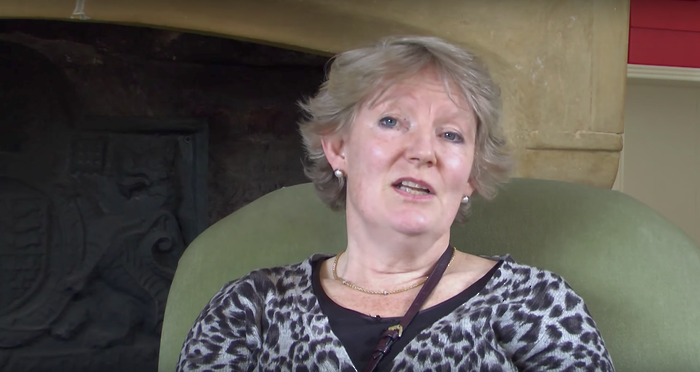Universities must provide childcare if women are to stay in academia, says Cambridge academic
Dr Fara suggested that unequal distribution of family responsibilities meant that many women were forced to leave academia early

A Cambridge academic has urged universities to steady flow’ of women exiting academia by providing more support for childcare.
Dr Patricia Fara, Senior Tutor of Clare College and a lecturer at the Department of History and Philosophy of Science (HPS) made the comments while speaking at the Cheltenham Science Festival about the scientist Marie Curie.
Arguing that the practical difficulties of starting a family are among the biggest factors pushing women to prematurely put on hold or give up altogether their academic careers, Dr Fara said that “if universities really wanted equality they would invest more money in childcare”.
Research carried out by the University and College Union found a 12 per cent gender pay gap for academic staff in UK universities. Dr Fara contended that this disparity meant that the bulk of primary childcare responsibilities is still shouldered by women, who are offered far too little support with balancing their family and professional responsibilities.
The subsequent difficulties universities face in retaining their female academic staff perpetuates the income disparity between men and women in academia, she added, since salary is closely connected with seniority.
Research carried out in 2014 by the Science and Technology Select Committee of the House of Commons found that, while women far outnumber men at the early stages of their career in academia, less than a quarter of professors in the UK are women. This pattern is especially acute in the fields of science, technology, engineering, and mathematics (STEM).
However, the report also claimed that the gender imbalance in academia was difficult to attribute to one factor alone, and was “the result of perceptions and biases combined with the impracticalities of combining a career with family”.
The growing proportion of academic staff employed on temporary short-term contracts adds to the insecurity of working
Dr Fara joined dozens of academics at the University of Cambridge who wrote a letter to the Times Higher Education in 2014 arguing for changes to “how we value judge and value success in UK higher education” to make recruitment and promotion more inclusive. Conventional criteria for success “benefit men more than they do women,” who “value a broader spectrum of work-based competencies that do not flourish easily under the current system,” it asserted.
Dr Fara, who is also president of the British Society for the History of Science, spoke at the Cheltenham Science Festival about the discrimination Marie Curie faced throughout her career as a woman in a field dominated by men, despite having been awarded Nobel Prizes in chemistry and physics. Fara said Curie was responsible for paving the way for women to take on a more visible role in the sciences by “[showing] that you don’t have to be either a scientist or a normal woman,” instead proving that “you can be both a scientist and a normal woman.”
Speaking to Varsity, Dr Fara compared the “blatant mockery and explicit segregation” suffered by Curie to the experiences of female academics today. “Concealed prejudice can be harder to fight and more keenly felt,” she said, due to “the absence of female portraits on corridor walls, the paucity of women’s works on student reading lists, the near non-existence of senior women delivering key-note addresses at scientific conferences.”
She continued, “Curie could see what she was fighting against, but modern discrimination is elusive, intangible and insidiously hard to eradicate.”
 Music / The pipes are calling: the life of a Cambridge Organ Scholar25 April 2025
Music / The pipes are calling: the life of a Cambridge Organ Scholar25 April 2025 News / Candidates clash over Chancellorship25 April 2025
News / Candidates clash over Chancellorship25 April 2025 Interviews / Dr Ally Louks on going viral for all the wrong reasons25 April 2025
Interviews / Dr Ally Louks on going viral for all the wrong reasons25 April 2025 News / Cambridge professor paid over $1 million for FBI intel since 199125 April 2025
News / Cambridge professor paid over $1 million for FBI intel since 199125 April 2025 Comment / Cambridge builds up the housing crisis25 April 2025
Comment / Cambridge builds up the housing crisis25 April 2025






